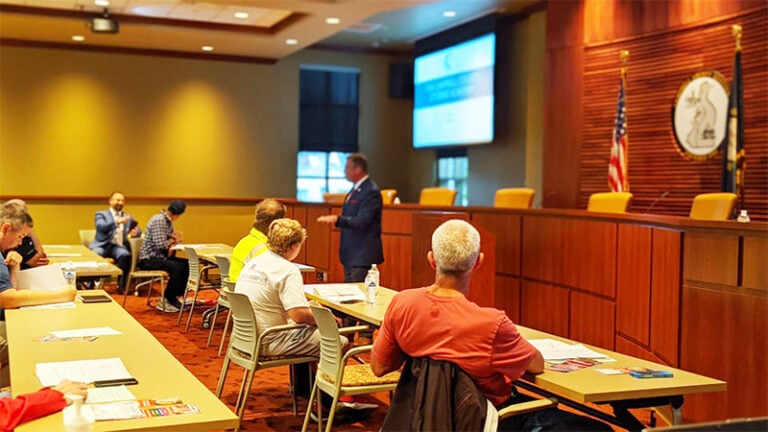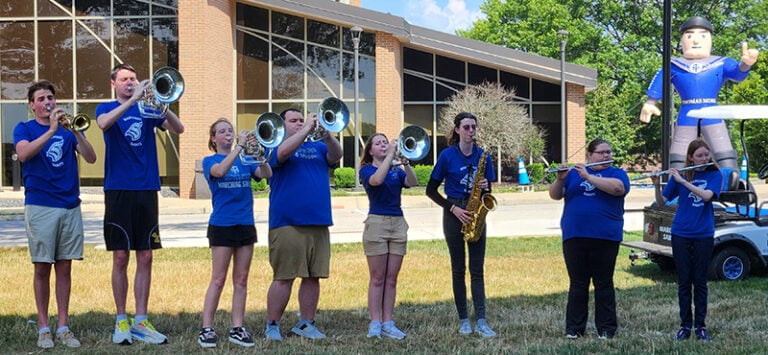In the movie Heathers, a dark comedy released 34 years ago, believe it or not, a character named Veronica, played by Winona Ryder, got into an argument with one of the young women named Heather, played by Shannon Doherty.
“Heather, why can’t you just be a friend?’” Veronica asked. “Why do you have to be such a mega-b—h?’”
To which Heather responded, “Because I can be.”
That, in a nutshell, is the rationale members of the 2022 Kentucky General Assembly used to explain any number of poisonous acts perpetrated on the Commonwealth during the legislature’s too long 60-day session earlier this year – they were nasty simply because they could be.

And now, we find, the impact of one of those brutalities for the sake of brutality initiatives is becoming all too apparent.
The Supplemental Nutrition Assistance Program, known as SNAP, is a lifesaver in the Bluegrass State. More than 543,000 Kentuckians benefit from the successor to what was known as food stamps. More than 12 out of every 100 residents participate in the federal program that provides what used to be known as the working poor and those without any income at all with aid in purchasing food for the table.
Anyone determined to earn below the federal poverty level, which is about $28,000 for a family of four, is eligible for SNAP benefits. In Kentucky, according to the Center on Budget and Policy Priorities, most of those on SNAP have jobs, most commonly working for low wages as cooks, home health care aides, cashiers, customer service representatives, and the like. Most of those who aren’t gainfully employed are children – about 226,000 as of 2019. And 62,000 are over the age of 60.
The financial situation for those on SNAP grew increasingly perilous once the impact of the COVID-19 pandemic hit and good-paying jobs became even more scarce as shops and businesses were forced to close. By April 2020, SNAP enrollment increased by about 16 percent because of pandemic-related layoffs, meaning more Kentuckians faced food-related crises.
With all this going on, Gov. Andy Beshear declared a COVID state of emergency on March 6, 2020, leading to a number of actions to impede the spread of the disease, which, as of Thursday, had killed 1,027,886 nationwide and more than 16,000 in Kentucky. Beshear closed businesses and schools temporarily, banned large gatherings and, to the chagrin of almost everyone, imposed a mask mandate.
The declaration had one positive impact – it rendered the Commonwealth eligible for additional federal benefits, including increased funding for the SNAP program, to the tune of about $50 million a month in emergency allotments, to assure that families didn’t go hungry because of conditions outside their control.
By October 2021, according to the Kentucky Center for Public Policy, SNAP participants realized an average 27 percent benefits increase.
The situation stumbled along until June 2021 when Beshear ended most of the COVID restrictions – including the mask mandate – while keeping the emergency declaration in place so the state could continue to receive the extra SNAP benefits.
But then came January and the legislature consumed Frankfort. Almost immediately, lawmakers, apparently exhausted from dealing with the issue, set an April 14 deadline for ending the emergency, even though measures were no longer in place. As a result, the state would not be eligible to receive the $50 million emergency allotment beyond May.
Then, after determining it was being too easy on hungry children, lawmakers decided to end the emergency in March, thus forfeiting the $50 million May allotment.
As a result, the Kentucky Center for Public Policy concluded, Kentucky’s SNAP participants, 12.1 percent of the state’s population, will lose an average of about $100 a month in grocery money per person from what they had been receiving since April 2020.
“But that’s just the average,” according to the Center’s Dustin Pugel, “others like seniors and working folks who have income near but below the poverty level lost up to $230 per month.”
The federal emergency, which cleared the way for the allotments, is expected to extend through November. So, the Center maintains, ending the Commonwealth’s declaration in March cost Kentucky – and, more particularly, the more than half-million folks receiving SNAP benefits – about $350 million.
And you can’t say they weren’t warned. Beshear vetoed Senate Joint Resolution 150, setting the March expiration date, explaining that, “I believe that given we have zero statewide restrictions — and we haven’t for six months — all this resolution does is hurt these folks by cutting off this extra food aid, while doing absolutely nothing else.”
Lawmakers overrode the veto.
Now, you may be wondering what made it so doggone necessary to rush an expiration date on an emergency declaration that no longer had any teeth anyway, thus costing the state $350 million used to make sure the hungry, including a quarter million children, had something to eat.
Good luck figuring it out.
Rep. Thomas Huff, R-Shepherdsville, who filed the resolution in the House, told the indispensable Deborah Yetter of the Courier Journal of Louisville, who soon will be inducted into the Kentucky Journalism Hall of Fame, he didn’t give two shucks about losing SNAP benefits.
“I’m not really interested in continuing to draw federal funds if they’re not deserved or needed,” he said.
In other words, let them eat cake, but there ain’t no cake.
What a schmuck.
It’s normally not considered kosher in a column to call someone out as stupid, but in a state where, according to Feeding America, 575,300 people are facing hunger, including 162,100 children, it’s difficult to avoid. Federal funds not needed? Well, pal, maybe we can scrounge up a few more hungry kids to convince you otherwise.
Senate President Robert Stivers, R-Manchester, doesn’t come across any better, insisting that lawmakers didn’t intend to “impair or delay the ability of the Commonwealth to receive any federal stimulus or pandemic-related funds or services.”
That’s what Huckleberry Finn would call a stretcher. Lawmakers were told, in no uncertain terms, that the Commonwealth would lose millions of dollars, and people would lose food money, if the legislature continued down that path. They were told that in the veto message. Yet, they persisted.
Susan Dunlap, executive director of the Office of Public Affairs for the Cabinet for Health and Family Services, summed it up best in the Courier Journal: asserting “it is indefensible to take food benefits away from Kentuckians — especially our most vulnerable seniors and children — who already go hungry at a higher rate than the national average.”
So, why the cruelty?
Politics. Lawmakers can go home to Gravel Switch, Marrowbone, and Rabbit Hash and tell the folks they killed dead that evil COVID emergency declaration that made everyone wear those terrible, uncomfortable masks. Don’t forget me on Election Day and I’ll be glad to take your campaign contribution.
Those same folks will forget to tell constituents there were no longer any mandates to protect them from or that kids are going to go hungry as a result of their malice.
Ah, the General Assembly, Kentucky’s mega-b—h.

















